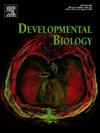Developmental life history transitions can be shaped by structural inequities: Insights from the sociology of race
IF 2.5
3区 生物学
Q2 DEVELOPMENTAL BIOLOGY
引用次数: 0
Abstract
Life history emerges as developmental processes play out over the lifespan of an organism, and the concept of life history intersects with evolutionary biology, ecology, demographics and sociology. Here, we briefly outline the interdisciplinary concept of life history, surveying some of the diversity in life history transitions across animal species, and exploring these transitions as genetically and hormonally-regulated developmental processes. We review some of the data suggesting that social structures are capable of shifting the timing of human life history transitions, with implications for lifetime health outcomes. Social and structural inequity in contemporary society tends to accelerate developmental life history processes, which can create temporal and physiological pressures that intersect with and amplify disadvantage. Focusing specifically on the experiences of Black women in the U.S., we examine the impacts of inequity on the timing of four developmental life history transitions: birth, puberty, first reproduction and menopause. We identify some of the important overlaps between developmental biology, sociology and public health, arguing that these disciplinary intersections can be introduced in many developmental biology classrooms. We propose some pedagogical frameworks designed to help students grow an awareness of how developmental processes can be affected by social inequities, with the ultimate goal of stimulating more cross-disciplinary conversations about life histories and their intersections with social structures.

发育生活史的转变可以由结构性不平等塑造:来自种族社会学的见解。
生命史是在生物体的整个生命周期中出现的发育过程,而且生命史的概念与进化生物学、生态学、人口统计学和社会学交叉。在这里,我们简要概述了生活史的跨学科概念,调查了动物生活史转变的一些多样性,并探讨了这些转变作为遗传和激素调节的发育过程。我们回顾了一些数据,这些数据表明社会结构能够改变人类生活史转变的时间,从而影响一生的健康结果。当代社会的社会和结构不平等倾向于加速发展的生活史过程,这可能会产生与不利因素交叉并扩大不利因素的时间和生理压力。特别关注美国黑人妇女的经历,我们研究了不平等对四个发育生活史转变时间的影响:出生,青春期,第一次生育和更年期。我们确定了发育生物学、社会学和公共卫生之间的一些重要交叉点,我们认为这些学科交叉点可以在许多发育生物学课堂上引入。我们提出了一些教学框架,旨在帮助学生提高对发展过程如何受到社会不平等影响的认识,最终目标是激发更多关于生活史及其与社会结构交叉点的跨学科对话。
本文章由计算机程序翻译,如有差异,请以英文原文为准。
求助全文
约1分钟内获得全文
求助全文
来源期刊

Developmental biology
生物-发育生物学
CiteScore
5.30
自引率
3.70%
发文量
182
审稿时长
1.5 months
期刊介绍:
Developmental Biology (DB) publishes original research on mechanisms of development, differentiation, and growth in animals and plants at the molecular, cellular, genetic and evolutionary levels. Areas of particular emphasis include transcriptional control mechanisms, embryonic patterning, cell-cell interactions, growth factors and signal transduction, and regulatory hierarchies in developing plants and animals.
 求助内容:
求助内容: 应助结果提醒方式:
应助结果提醒方式:


